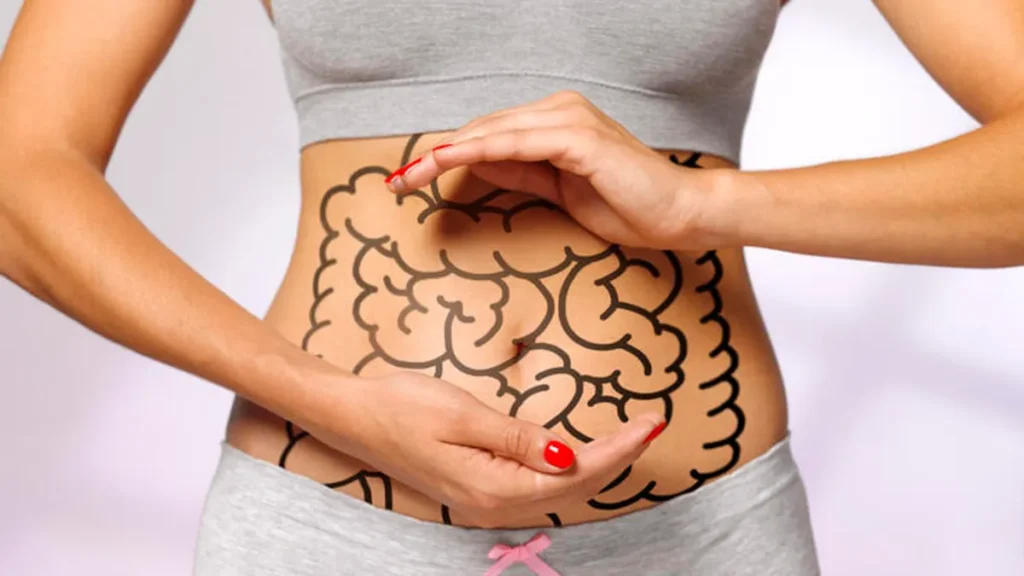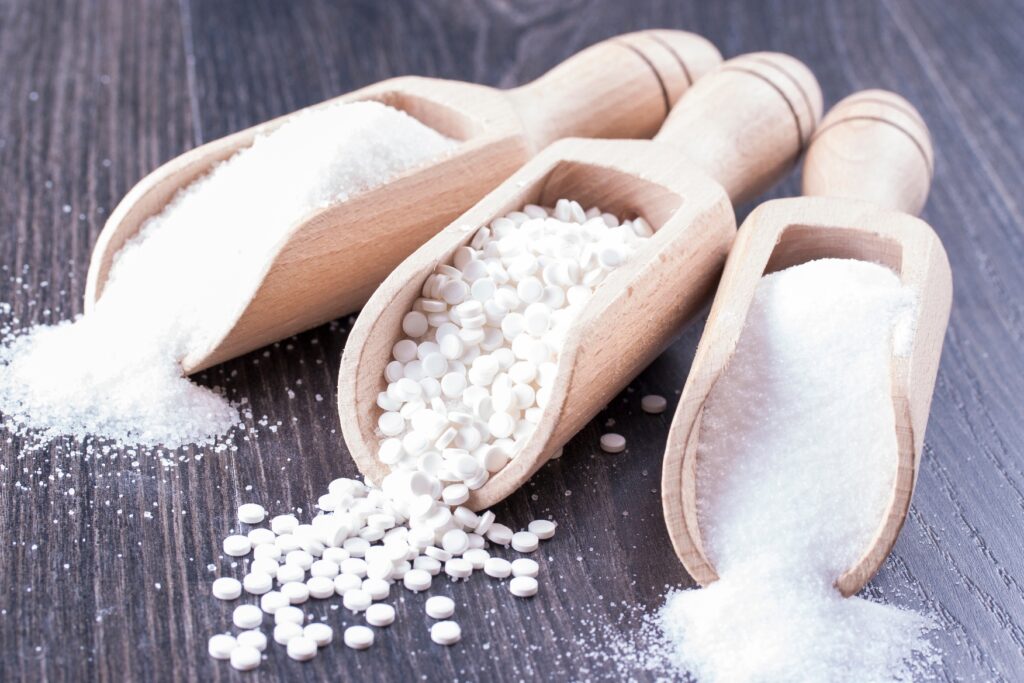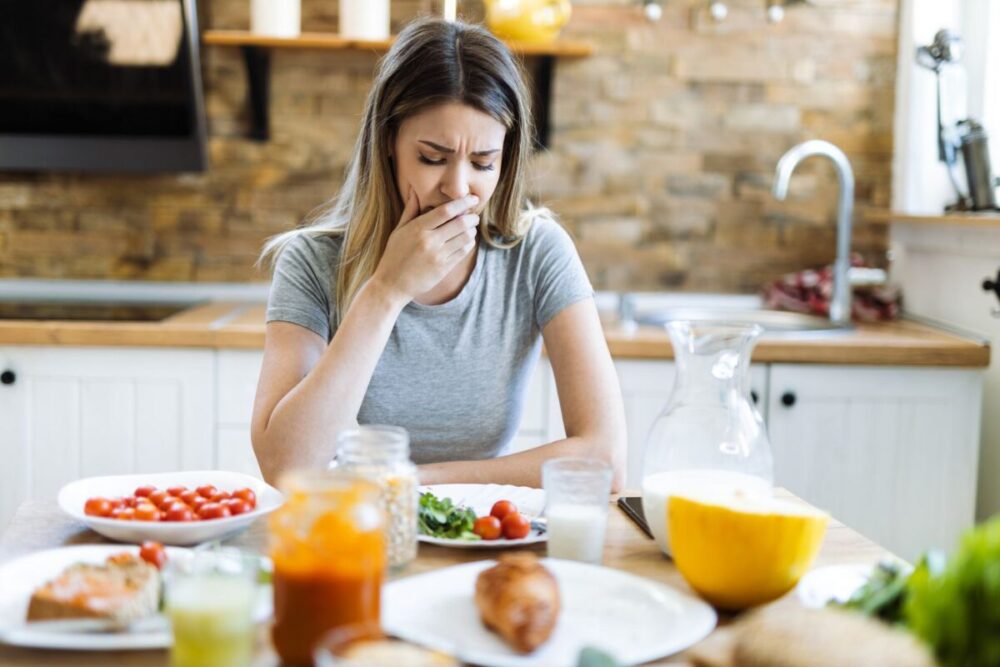So you finish eating, push your plate away, and… ugh. That heavy, bloated, tight-around-the-waist feeling creeps in. Sometimes it’s more than that — maybe your chest burns a little, or you’re burping way more than seems polite. Maybe your stomach starts talking louder than your podcast queue.
If meals leave you feeling gross instead of satisfied, you’re far from alone. But no, it’s not just “getting older” or “your stomach being sensitive.” And no, you don’t have to accept it as your post-lunch fate.
Here’s what might be going on — and more importantly, what you can do to actually feel good after you eat.
First, Let’s Talk About the Most Common Culprits
If you regularly feel uncomfortable after meals, a few usual suspects pop up again and again. Here’s what could be triggering that post-meal regret:
1. You’re Eating Too Fast
We’re all busy, sure. But scarfing down lunch while replying to Slack messages or watching YouTube doesn’t exactly set your digestion up for success. When you eat quickly, you swallow more air, don’t chew enough, and miss the signals your brain needs to say, “Hey, we’re full.”
What happens: You end up bloated, overly full, and possibly gassy. Your stomach feels like a balloon that didn’t sign up for this gig.
Try this:
- Put your fork down between bites.
- Count your chews a couple times just to see how fast you usually are.
- Give yourself a no-screens meal rule — even for just 15 minutes.

Source: rte.ie
2. You’re Eating the Wrong Kinds of Food for Your Body
Not everyone gets along with the same ingredients. For some people, dairy sets off an internal riot. For others, it’s gluten, beans, onions, garlic — or a combo of those (ever heard of FODMAPs?).
What happens: You eat something that doesn’t agree with your system, and your body lets you know with bloating, cramping, gas, or even fatigue.
Try this:
- Keep a “symptom journal” for a week. Just note what you eat and how you feel after.
- If you suspect a food intolerance, look into doing an elimination protocol — or better yet, talk with a registered dietitian.
3. You’re Eating Too Much Fat or Sugar (Or Both)
A super-rich meal can hang out in your stomach like a stubborn guest who doesn’t know when to leave. Add a sugary dessert and your blood sugar will spike, then crash, and digestion slows down.
What happens: You feel sluggish, puffy, and weirdly hungry again soon after.
Try this:
- Balance your meals with protein, fiber, and healthy fats instead of relying on just carbs or rich sauces.
- If you’re craving dessert, have something sweet, but maybe not a mountain of cheesecake after fried appetizers.
The Role Your Gut Actually Plays (That No One Talks About Enough)
There’s a ton of buzz about “gut health,” but not enough practical talk. Your digestive system isn’t just a tube things go through — it’s an insanely complex communication network. And when it’s off, you feel it.
That bloated, gassy, uncomfortable feeling? Often, it’s tied to how your gut microbes are processing what you eat. Yep, your stomach discomfort could actually be coming from bacteria partying (or revolting) in your colon.
And then there’s motility — the natural wave-like motion your gut uses to move food through. If it’s too fast, you get diarrhea. Too slow? Hello, bloating and constipation.
What helps:
- Eat more fiber — but the right kind. Think: oats, chia seeds, berries, leafy greens.
- Stay hydrated. It sounds basic, but even mild dehydration messes with digestion.
- Consider probiotics if you’re not eating fermented foods regularly (yogurt, kimchi, kefir, miso — the good stuff).
You can also support digestive regularity with natural supplements designed to gently get things moving without harsh laxatives. Look for ones that focus on fiber, herbal support, and microbiome balance.

Source: cnet.com
Okay, But What If It’s Something Medical?
Not to go all WebMD, but yeah — sometimes discomfort after eating isn’t just “a food thing.” If it’s chronic or severe, it might be pointing toward something else:
|
Possible Issue |
Symptoms That Might Show Up |
What To Do |
| GERD (Acid Reflux) | Burning in the chest, sour taste, worse when lying down | Try elevating your head at night, avoid trigger foods like tomato, citrus, or caffeine. See a doctor if frequent. |
| IBS (Irritable Bowel) | Bloating, constipation, diarrhea, or both | Stress plays a role. Keep a food and symptom journal. Explore low-FODMAP or gut-friendly diets. |
| Gallbladder Issues | Pain in upper right abdomen, nausea, especially after fatty meals | Get checked for gallstones if it persists. May require medical imaging. |
| SIBO (Small Intestine Bacterial Overgrowth) | Bloating, burping, diarrhea, often worse after carbs | Often needs testing and specific treatment with antibiotics or diet changes. |
If you’ve tried the basics and still feel lousy after eating, it’s worth talking to a GI specialist — no need to tough it out forever.
Small Changes That Can Make a Big Difference
You don’t need a full-on food revolution to start feeling better after meals. Try layering in a few of these:
Eat “Earlier” Dinners
Late-night meals tend to mess with your digestion, especially if you’re lying down soon after. Aim to eat dinner at least 2-3 hours before bed.
Cut Back on Carbonated Drinks
Soda, sparkling water, and even beer can blow up your stomach with extra gas. If you’re already bloated, these are like throwing fuel on the fire.
Move a Little After Meals
A 10-minute walk after eating can seriously help. It stimulates digestion, reduces blood sugar spikes, and might even help ease bloating.
Be Mindful of Artificial Sweeteners
Things like sorbitol, mannitol, and xylitol (often in gum or sugar-free snacks) can trigger bloating and gas in a lot of people. Sneaky little devils.

Source: blog.nemours.org
Morning Tips to Set the Tone for Better Digestion
Believe it or not, what you do before you eat can affect how you feel after. A few morning habits that help:
- Warm water with lemon: Not magical, but it can help stimulate digestion early on.
- Eat breakfast: Skipping breakfast can lead to eating larger, rushed meals later.
- Start with fruit or fiber: Something like berries or kiwi on oatmeal gets your gut moving gently.
When It’s Not Just Physical ─ The Stress Connection
Ever had a knot in your stomach during a tough conversation or anxiety that killed your appetite? Your gut and your brain are constantly talking. Chronic stress slows digestion, changes how your body processes food, and can actually shift your gut bacteria over time.
What helps:
- Try box breathing before meals: inhale 4 counts, hold 4, exhale 4, hold 4.
- Don’t multitask while eating (easier said than done, I know).
- If your schedule is nuts, even two slow, deep breaths before eating can signal your body to shift into “rest and digest” mode.
When to Get Help
Here’s a simple rule of thumb: if your discomfort is frequent, painful, or starting to mess with your daily life, don’t guess — get a pro involved. GI doctors and registered dietitians have seen it all. You’re not going to shock them with “I get gassy after salad.” Promise.
And if weight loss, blood in stool, or constant fatigue are in the mix, don’t wait. Those need real attention.

Source: austingastro.com
Final Thoughts ─ You Don’t Have to Feel Gross After Eating
Here’s the thing: eating should feel good. Not like a chore. Not like something you have to recover from.
If you regularly feel uncomfortable after meals, something’s off, but that’s fixable. With some real food tweaks, a little more attention to pace, and possibly some gut support, you can start feeling better fast.
And honestly? You deserve that.
Next meal, try slowing down just a little. Notice how you feel. Your stomach’s probably been trying to tell you something, and now you’ve got the tools to finally hear it.



















